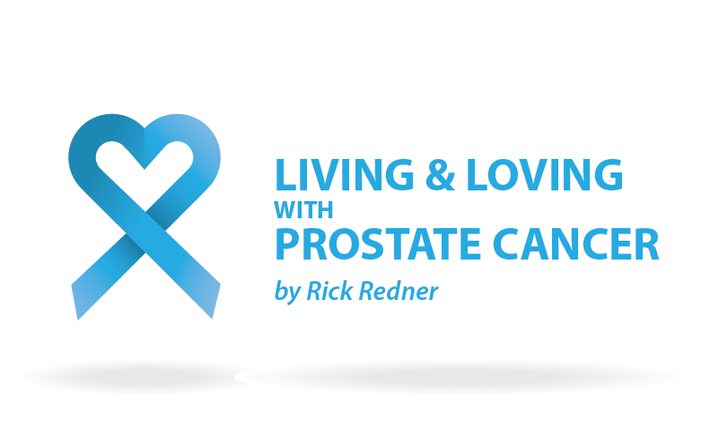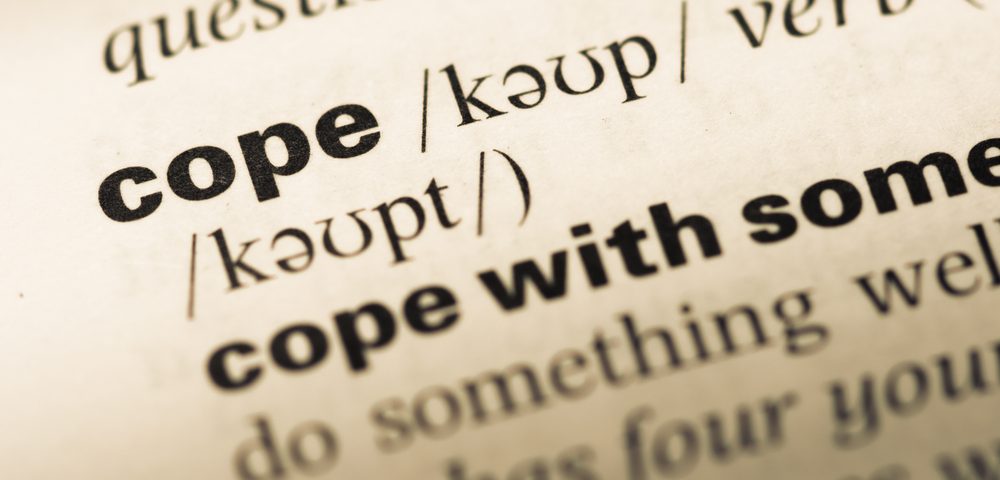
For five consecutive days, I dealt with troublesome and life-altering side effects from my most recent surgery, a cholecystectomy. During that time, I learned valuable lessons about coping with cancer, or any chronic disease that affects you every minute of your day and night. It took less than five days for me to reach a place of total exhaustion.
On one of those days, I needed to accomplish something so I could feel useful. I decided I had enough energy to walk to my driveway so I could install an “I love Cavalier King Charles Spaniels” license plate frame on my daughter’s car.
As I bent down, two things happened. First, I leaked a bit of urine. This was a reminder of one of the unwanted changes in my life that occurred after my prostatectomy to treat prostate cancer. Then, I began burping. This was a reminder of a side effect from a recently prescribed medication that absorbs excess bile secretions from my liver.
These two events occurring back-to-back gave me an epiphany. The training I received as I earned my master’s degree in social work was incomplete. For decades, I believed what I learned about crisis resolution, which says that the more crises you successfully resolve, the greater your capacity and skills for dealing with a future crisis. It sounds like a great theory, but I came back into the house with a new understanding that there are times when a series of consecutive and unwanted changes will leave you vulnerable to feeling totally wiped out and worn, no matter how many crises you’ve successfully resolved.
There was no doubt in my mind that the past few days with little or no sleep, an inability to eat (I lost seven pounds in a week), constant pain, an inability to go to work, unrelenting fatigue, and multiple trips to the bathroom every hour had ground me down in such a way that I was seriously worn out.
Whatever resilience I gained coping successfully with past crises vanished. I felt fatigued beyond measure. The simple task of walking outside, loosening two screws, putting on a new license plate frame, then walking back into the house drained me of all my energy.
Once inside, I wondered whether I had enough energy left to walk upstairs to reach my bedroom that night, or if I’d choose to sleep downstairs on the couch. At bedtime, I felt fortunate that I had a sufficient supply of energy to climb the stairs. Climbing the stairs and sleeping in my bed was something I always took for granted. Now it was a victory worth celebrating!
I spent most of my waking hours wanting to do nothing other than to sit on my couch. Engaging in any physical activity, no matter how slight, was physically exhausting. Going to work was out of the question.
Weariness trifecta
I hated living in this state of being worn out, but it brought me a sense of relief to accurately acknowledge my current state of weariness. I discovered there are three types of weariness. The first is physiological, the second is psychological, and the third is relational. It’s very common to feel weary in all three areas at the same time.
When I asked my wife if she was feeling worn out, I wasn’t in the least bit surprised to hear she was. I felt, and still do, a heavy sense of guilt that my health problems brought my wife into a state of feeling worn.
Our ability to acknowledge our shared experience of being worn out brought us closer together. There’s no shame in admitting coping with cancer or any chronic disease can wear you down.
I knew my wife needed a break, so I suggested she get out of the house and away from me. She decided to go out for a few hours with our daughter.
When they came home, they shared their fun-filled experiences with me. As I listened, I realized they were talking about a world that I’d left behind in less than a week’s time. I had serious doubts about whether I’d ever regain enough energy to leave the couch and my home in order to venture into the world to enjoy any form of outside entertainment or recreational activities.
I realized there’s a list of energy-draining changes that occur in the lives of folks coping with cancer, or the side effects from treatment.
A healthy spouse can experience some of these unwelcome changes as well. This means that whether you’re the one diagnosed with cancer, or the healthy spouse, if you’re dealing with any of the issues on this list, you’re vulnerable to feeling worn:
- Sleep deprivation
- Constant and unrelieved pain
- Unpleasant symptoms that take over your life
- A change in appetite or digestion that makes eating undesirable
- Becoming homebound
- Losing activities that bring intimacy into your relationship
- Losing activities that brought meaning and purpose into your life
- Losing recreation and pleasurable activities or hobbies
- Losing the opportunity to enjoy the company of friends and family
- Losing the connection between you and your community of faith
- Experiencing a crisis in your faith
- Losing the quality of your life to such an extent that there is little or no pleasure in living
- Feeling that you are nothing but a burden to your family
- Dealing with a slow or unresponsive healthcare provider or system
- Dealing with friends or family that frustrate or disappoint rather than help you.
The intensity, duration, and frequency of being worn out are affected by the types of unwanted change you experience. For example, chronic pain or serious sleep deprivation can cause you to feel worn in a matter of days.
In my next blog, I’ll share some antidotes to feeling worn.
In the meantime, I’m providing a link to a faith-based song that I believe does an outstanding job describing what it’s like to feel worn. The song is appropriately titled, “Worn.”
If you’d like to share your experiences with feeling worn as you’ve coped with cancer, I’d like to hear from you.
***
Note: Prostate Cancer News Today is strictly a news and information website about the disease. It does not provide medical advice, diagnosis, or treatment. This content is not intended to be a substitute for professional medical advice, diagnosis, or treatment. Always seek the advice of your physician or other qualified health provider with any questions you may have regarding a medical condition. Never disregard professional medical advice or delay in seeking it because of something you have read on this website. The opinions expressed in this column are not those of Prostate Cancer News Today, or its parent company, BioNews Services, and are intended to spark discussion about issues pertaining to prostate cancer.


Thanks for the information. I had my radical prepubic prostatectomy March six and I had a biopsy Gleason score of 9 , aggressive cancer outside the prostate gland and I just finished seven weeks of radiation therapy treatments for the cancer that has spread to my bladder.
I was told because it was aggressive agent orange prostate cancer that the nerves to my penis were not spared and cut into my sphincter and I have to wear adult pull up diapers and I have to go to bathroom all the time and I been so depressed that all I can do is lay in bed all day and night for as long as I can and it is killing my neck and left shoulder and arm and it hurts so bad and my whole left side is affected and I have copd and emphysema and I have lots of difficulty breathing. Just going twenty feet to the bathroom wears me out and difficulty breathing even when I lay back down in bed I can’t breathe and have to get back up and go to bathroom but I sometimes pee my pants at least once a day and dribble every time I get up or cough and sneezing and I don’t know what I’m doing. Being a disabled Vietnam and Cambodia combat wounded veteran with ptsd and three children passed away with no one to help me.